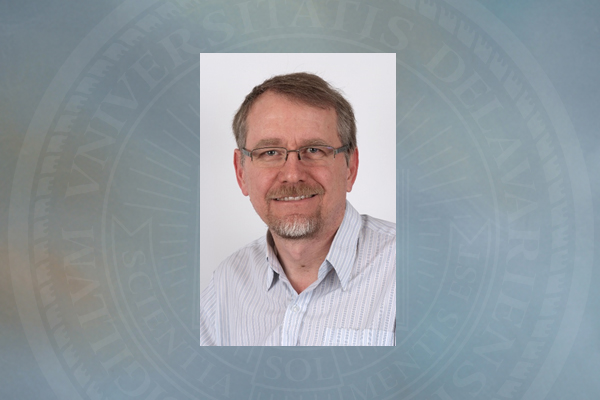
Oct. 19: Swedish educator to speak
Sweden's Oskarsson to speak in School of Education colloquium
1:32 p.m., Oct. 13, 2015--The University of Delaware’s School of Education (SOE) will host a special colloquium presentation by Magnus Oskarsson, the national project manager for the Programme for International Student Assessment (PISA) in Sweden and the science coordinator for the Trends in International Mathematics and Science Study (TIMSS), at 2 p.m., Monday, Oct. 19.
Oskarsson is a member of a group of mathematics and science educators from Mid Sweden University that will be visiting the SOE that day.
Research Stories
Chronic wounds
Prof. Heck's legacy
Oskarsson’s presentation, titled “The Marketization of the Swedish School System,” will discuss the marketization of the Swedish school system and its potential connection to the decrease in student mathematics literacy results over the last 12 years.
In the mid-1990s, a voucher system was introduced in Sweden with new legislation that allowed private schools to be fully financed by public means. In the mid-2000s, new steering mechanisms were introduced, including an expanded grading system, a vast increase in the number of national tests and a school inspectorate.
“This presentation will give the audience an opportunity to appreciate how change in educational policy can have a concrete impact on student performance,” said Zoubeida Dagher, professor of science education. “Focusing attention on the consequences of larger, complex forces at work outside the parameters of the classroom provides a healthy systems perspective for interpreting student achievement on international tests.”
The Mid Sweden University group in attendance will include six science educators and five math educators with research interests in student attitudes toward science, gender in the science classroom, mathematics education courses, large-scale comparative education studies and school equity.
The group includes Hakån Edlund, professor of physical chemistry and lecturer in the teaching training program. He served as a post-doctoral scholar in UD’s chemical and biomolecular engineering department from 1999 to 2000 and suggested that the group visit the School of Education.
“After completing my post-doctoral work, I followed the work of the School of Education from a distance,” said Edlund. “In a global world, the challenges for math and science education are much the same, and we can all learn from each other and share experiences.”
“Global conversations provide perspective on domestic education issues by sharing how other countries have addressed their own,” said Dagher. “Whether they target issues at macrolevels of organization (such as curriculum policy documents and school governance) or at microlevels (classrooms, teacher-student interactions), international conversations bring to the fore the complexity of policy decisions and their concrete impact on the generations of future citizens they are meant to serve.”
During their University of Delaware visit, the group will also visit the Harker Interdisciplinary Science and Engineering Laboratory and attend classes with Robert Hampel, professor of the history of education, and Jon Manon, associate director of the Professional Development Center for Educators and assistant professor of mathematics education.
Following their visit to UD, the group will spend a day at Downes Elementary School observing classes and interacting with teachers.
Oskarsson’s presentation begins at 2 p.m. in Room 207 of the Willard Hall Education Building. A discussion and question-and-answer period will follow his presentation at 3.
Students, faculty, and community members with interests in mathematics, science, public policy, educational equity, and global trends in education are encouraged to attend. This event is free, and no advance registration or RSVP is required.
For more information, please visit the School of Education colloquium series webpage.
Article by Jessica Henderson








